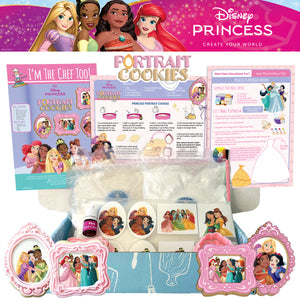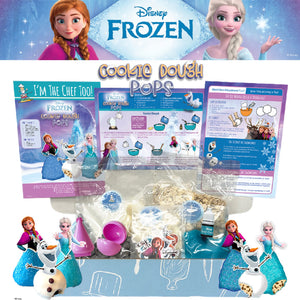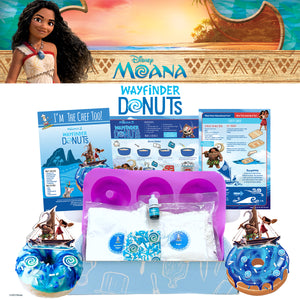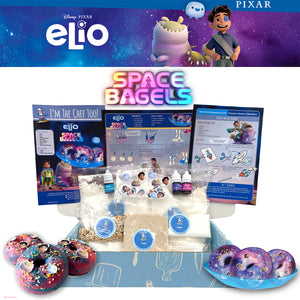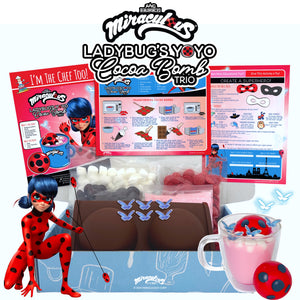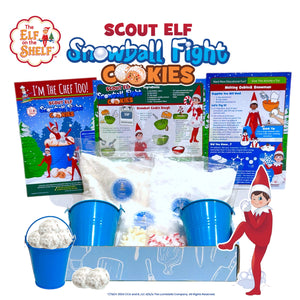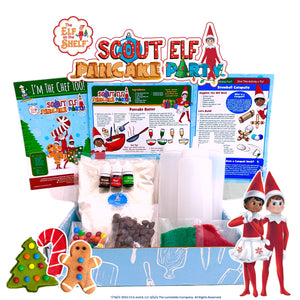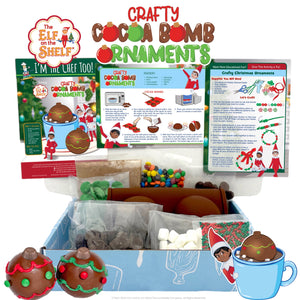Engaging Scout STEM Activities for Young Innovators

Table of Contents
- Introduction
- The Evolution of STEM in Scouting: Bridging the Gaps
- Why STEM Matters More Than Ever for Scouts
- Bringing STEM to Life: Core Principles for Scout Leaders & Parents
- Diverse Scout STEM Activities: A Deep Dive
- Integrating STEM into Every Meeting & Outing
- Resources and Support for Scout STEM Journeys
- Setting Realistic Expectations and Celebrating the Process
- Conclusion
Have you ever watched a child’s eyes light up as they discover something new, or seen their intense focus as they try to solve a puzzle? It’s a truly magical moment, showcasing the incredible natural curiosity inherent in every young learner. For generations, scouting programs have been a cornerstone of character development, outdoor adventure, and skill-building. But as the world rapidly evolves, so too do the skills our children need to thrive. This is where the power of STEM – Science, Technology, Engineering, and Mathematics – seamlessly integrates with the timeless traditions of scouting, creating an unparalleled landscape for growth and discovery.
At I'm the Chef Too!, we understand that the most impactful learning happens when it's fun, hands-on, and directly connects to a child's world. Our mission is to blend food, STEM, and the arts into one-of-a-kind "edutainment" experiences, sparking that very curiosity and creativity. This approach aligns perfectly with the spirit of scouting, where practical application and experiential learning are key. This blog post will dive deep into how scout programs are increasingly embracing STEM, offering a wealth of ideas for engaging scout STEM activities that go beyond traditional campfire tales, helping to foster critical thinking, problem-solving, and a lifelong love for learning in young minds. We'll explore diverse STEM adventures, from the thrill of rocketry to the wonders of nature, and show you how these activities prepare scouts not just for badges, but for a future full of possibilities.
Introduction
Imagine a group of excited scouts, not just hiking through the woods, but actively mapping their route using compasses and GPS, analyzing soil samples, or building a miniature bridge to cross a pretend river. This isn't just play; it's hands-on STEM in action, a vital component of modern scouting. For too long, the perception of scouting might have leaned heavily on survival skills and knot-tying, which are undoubtedly valuable. However, a significant evolution has occurred, particularly within programs like Cub Scouts, to ensure that STEM is not just an add-on but an intrinsic part of the adventure.
Recent reviews of elective adventures in scouting have highlighted a need to bolster areas of Technology, Engineering, and Math, recognizing that while science-based activities have always been strong, there were gaps in providing comprehensive STEM exposure. This proactive shift ensures that scouts at every rank now have access to compelling STEM-based elective adventures, designed to challenge, educate, and entertain. Our purpose today is to shine a light on this exciting integration, offering parents, leaders, and educators a comprehensive guide to scout STEM activities that are both fun and profoundly educational. We’ll explore various STEM domains, offer practical examples, and show how easily these concepts can be incorporated into den meetings, pack events, or even at home. Ultimately, the fusion of scouting and STEM is about nurturing well-rounded individuals who are not just prepared for the wilderness, but also for the complex and technologically driven world they will inherit.
The Evolution of STEM in Scouting: Bridging the Gaps
Scouting has always been about preparing young people for life's adventures, instilling values, and teaching practical skills. Historically, many of these skills naturally intersected with scientific principles. Think about tracking animals (biology), understanding weather patterns (meteorology), or fire-starting (chemistry and physics). These were, in essence, early forms of STEM education, albeit not formally labeled as such. However, as the pace of technological advancement accelerated, it became clear that a more explicit focus on Science, Technology, Engineering, and Mathematics was necessary to equip scouts with the tools they need for the 21st century.
Recognizing this, scout programs have undertaken significant revisions to their adventure requirements and elective activities. The goal was not to replace the foundational outdoor and character-building elements, but to enhance them by strategically weaving in modern STEM concepts. A key finding from these reviews was that while traditional scouting activities offered robust science experiences, there were often notable gaps in providing structured opportunities for Technology, Engineering, and Mathematics. This led to the development of new elective adventures specifically designed to address these areas, ensuring that from the youngest Cub Scout to the most senior Scout, every individual has access to enriching STEM experiences.
This evolution signifies a commitment to providing a holistic education. It acknowledges that skills like critical thinking, computational thinking, design thinking, and data analysis are just as crucial as knot-tying or first aid. By integrating STEM more deeply, scouting programs are not just keeping up with the times; they are actively shaping the innovators, problem-solvers, and leaders of tomorrow. These new adventures encourage scouts to explore how things work, to design and build, to analyze data, and to understand the technological world around them, often through engaging, hands-on challenges that perfectly echo our philosophy at I'm the Chef Too!. We believe in teaching complex subjects through tangible, hands-on, and delicious adventures, much like how scouting uses real-world scenarios to teach STEM. If you're looking for ongoing, exciting educational experiences that blend learning with fun, we invite you to Join The Chef's Club for a new adventure delivered to your door every month.
Why STEM Matters More Than Ever for Scouts
The world our children are growing up in is fundamentally different from previous generations. Automation, artificial intelligence, biotechnology, and data science are no longer concepts from science fiction; they are driving forces shaping our economies, our daily lives, and the very nature of work. In this rapidly changing landscape, STEM skills are not just an advantage; they are increasingly a necessity. For scouts, embracing STEM is about much more than earning a badge; it's about building a robust foundation for their future success and well-being.
Consider these profound impacts of strong STEM skills:
- Critical Thinking and Problem-Solving: STEM activities inherently demand critical thinking. Whether a scout is troubleshooting a robot, designing a Pinewood Derby car, or analyzing environmental data, they are learning to identify problems, gather information, evaluate options, and implement solutions. This process sharpens their analytical abilities and teaches them resilience when faced with challenges.
- Fostering Creativity and Innovation: STEM is not just about logic and numbers; it's about imagination. Engineering challenges, for instance, require scouts to think outside the box, prototype ideas, and iterate on their designs. From crafting the most aerodynamic paper airplane to concocting "instant snow," STEM encourages creative solutions and innovative approaches to real-world problems.
- Future Career Opportunities: The job market of tomorrow will be heavily influenced by STEM fields. By engaging with science, technology, engineering, and mathematics early, scouts gain exposure to potential career paths they might never have considered. This foundational knowledge can spark a lifelong passion that leads to fulfilling and impactful careers in areas like software development, renewable energy, medicine, or aerospace.
- Addressing Global Challenges: Many of the most pressing issues facing humanity—climate change, global health crises, sustainable resource management, and food security—require STEM knowledge and innovation to solve. Equipping scouts with these skills empowers them to become part of the solution, fostering a sense of global citizenship and responsibility.
- Building Confidence and Resilience: Successfully navigating a STEM project, especially one that involves trial and error, builds immense self-esteem. When a scout designs a working catapult, deciphers a code, or successfully launches a rocket, they experience the tangible results of their efforts. This teaches them that complex tasks are achievable through perseverance and experimentation, fostering a "can-do" attitude that extends far beyond STEM.
- Digital Literacy and Understanding: In an increasingly digital world, understanding how technology works is paramount. STEM activities introduce concepts like coding logic, circuitry, and data interpretation, helping scouts become informed and responsible digital citizens rather than just passive consumers of technology.
At I'm the Chef Too!, we resonate deeply with these benefits. Our cooking STEM kits are designed by mothers and educators who understand the importance of making learning accessible, enjoyable, and relevant. We see firsthand how combining delicious treats with scientific experiments and engineering challenges helps children develop these crucial skills in a way that feels like play, facilitating family bonding and providing a much-needed screen-free educational alternative. If you're looking for more ways to spark this kind of learning at home, we encourage you to Explore our full library of adventure kits for a wide array of one-time adventures.
Bringing STEM to Life: Core Principles for Scout Leaders & Parents
For scout leaders and parents, the idea of incorporating more STEM might seem daunting, especially if your own background isn't heavily in these areas. But here's the wonderful truth: you don't need to be a scientist or an engineer to facilitate powerful STEM learning experiences. The core principles are about fostering curiosity, encouraging exploration, and providing opportunities for hands-on engagement.
Hands-On Learning: The I'm the Chef Too! Way
The most effective STEM education is rarely about textbooks and lectures. It's about doing, experimenting, and discovering. This is where the magic happens for scouts. Whether it's building a model, conducting an experiment, or dissecting an old appliance, tangible interaction makes abstract concepts concrete and memorable.
At I'm the Chef Too!, this is our guiding philosophy. We believe that when children can touch, taste, smell, and manipulate ingredients while learning about chemical reactions, physical changes, or mathematical measurements, the learning becomes deeply ingrained. Our unique approach of teaching complex subjects through delicious cooking adventures transforms a kitchen into a vibrant laboratory or an exciting engineering workshop. For example, understanding states of matter becomes fascinating when you're making ice cream, and measuring ingredients precisely teaches fractions and ratios in a practical, delicious context. This method naturally reduces the intimidation factor often associated with STEM, making it approachable and exciting for all.
Learning Through Play: Making it Fun and Engaging
If it feels like work, kids will resist. If it feels like play, they'll dive in headfirst. STEM activities for scouts should prioritize fun and engagement. This means framing challenges as exciting missions, turning experiments into "magic" (that can be explained!), and allowing for plenty of creativity and choice.
Consider the example of a "forensics" themed den meeting where cookies mysteriously disappear. Scouts can use their newfound STEM skills to investigate: collecting "evidence" like shoe prints, analyzing "fingerprints," and even deciphering a "coded message." This turns a learning session into an immersive game, making concepts like observation, deduction, and data analysis incredibly appealing. Just like our kits turn baking into an adventure, scout activities can transform learning into an unforgettable game. For ongoing fun and learning delivered right to your doorstep, remember to Join The Chef's Club and never run out of exciting experiences.
Fostering Curiosity, Not Just Memorization
True STEM education isn't about memorizing facts; it's about nurturing a curious mindset. Encourage questions, even the silly ones. Celebrate failed experiments as learning opportunities. The goal is to cultivate a love for inquiry and discovery, where "I wonder why?" leads to "Let's find out!"
This involves:
- Asking Open-Ended Questions: Instead of "What happened?", try "Why do you think that happened? What could we change next time?"
- Embracing Experimentation: Provide materials and a challenge, then step back and let scouts explore. Not every experiment will yield the expected result, and that's perfectly okay. The process of trial and error is crucial for scientific thinking.
- Connecting to Real Life: Help scouts see how STEM concepts apply to their everyday world, from the technology in their homes to the natural phenomena they observe outdoors. This relevance makes learning more meaningful.
Remember, the best STEM activities are those where you and the scouts are learning together. You don't need to have all the answers; sometimes, "Let's find out!" is the most powerful response a leader can give. This shared journey of discovery makes the experience richer for everyone involved.
Diverse Scout STEM Activities: A Deep Dive
The beauty of STEM is its vastness, encompassing countless fascinating subjects. For scout programs, this means an incredible array of activities can be adapted to fit different age groups, interests, and environments. Here's a closer look at some key areas and specific ideas for engaging scout STEM activities.
Engineering Marvels: From Rockets to Derby Cars
Engineering is all about design, build, and problem-solving. It's about applying scientific principles to create practical solutions. These activities are fantastic for developing spatial reasoning, planning skills, and an understanding of forces and mechanics.
Rocketry Adventures (Physics, Aerodynamics, Thrust)
Building and launching rockets is arguably one of the most thrilling STEM activities for scouts. It’s an exhilarating way to introduce concepts like aerodynamics, thrust, gravity, and stability.
- Activity Idea: Use simple kits to build small model rockets. Before launching, discuss how the shape of the fins affects stability, how the fuel creates thrust, and how gravity pulls the rocket back down. Scouts can experiment with different fin designs or nose cone shapes to see how they impact flight path and altitude.
- Learning Outcomes: Understanding Newton's laws of motion, principles of flight, and the engineering design process (design, build, test, refine).
Pinewood Derby Engineering (Friction, Weight, Design)
A classic scouting tradition, the Pinewood Derby is a masterclass in applied engineering. Scouts design and carve their own wooden cars, then race them.
- Activity Idea: Focus on the "why" behind design choices. Discuss how wheel alignment affects speed (friction), how weight distribution impacts momentum, and how aerodynamics reduce drag. Scouts can test different car designs, add weights, and polish axles to minimize friction.
- Learning Outcomes: Concepts of friction, inertia, gravity, potential and kinetic energy, and the iterative design process. They learn that small adjustments can lead to big differences in performance.
Building Challenges (Bridges, Structures, Simple Machines)
Engineering isn't just about rockets and cars; it's about making things that work efficiently and reliably.
- Activity Idea: Challenge scouts to build the strongest bridge using only spaghetti and marshmallows, or the tallest free-standing tower from newspaper and tape. Explore simple machines like levers, pulleys, and inclined planes by building miniature catapults or a Rube Goldberg-style chain reaction. For older scouts, learning lashing techniques for building larger structures can be an incredible engineering challenge.
- Learning Outcomes: Understanding structural integrity, load-bearing capacity, mechanical advantage, and collaborative problem-solving. These are fundamental engineering principles that govern everything from skyscrapers to complex machinery.
Scientific Explorations: Unveiling the Natural World
Science helps us understand the world around us, from the smallest microbes to the vastness of space. Nature is a boundless laboratory for scouts, offering endless opportunities for scientific inquiry.
Nature & Wildlife Studies (Ecosystems, Observation, Botany, Zoology)
Scouting’s deep connection to the outdoors makes nature studies a natural fit for STEM.
- Activity Idea: Go on a "Be a Plant Doctor" hike, identifying different plant species and discussing their roles in the ecosystem. Conduct a "Habitat Hike" to observe local wildlife and understand how living things interact with their environment. Collect samples (responsibly!) for microscopic examination back at the den. Encourage scouts to keep nature journals, sketching observations and noting questions.
- Learning Outcomes: Basic ecology, biodiversity, observation skills, classification, and an appreciation for conservation. They learn about the delicate balance of ecosystems.
Environmental Science & Conservation (Pollution, Habitats, Sustainability)
Understanding our impact on the environment and how to be good stewards is a crucial aspect of STEM.
- Activity Idea: Conduct a "Water Filter" experiment using simple materials to purify dirty water, demonstrating the importance of clean water. Discuss "Learn to compost!" and the science behind decomposition and waste reduction. Create "seed bombs" or "seed paper" to learn about plant growth and ecological restoration. Undertake a "Track your Carbon Footprint" exercise to understand personal environmental impact.
- Learning Outcomes: Environmental awareness, concepts of pollution, resource management, sustainability, and the importance of active conservation. These activities instill a sense of responsibility towards the planet.
Weather & Meteorology (Data Collection, Patterns, Climate)
The weather is a daily part of life, making it a highly relevant scientific topic.
- Activity Idea: Build a simple weather station using a rain gauge, thermometer, and barometer. Track daily weather patterns, chart temperature and precipitation, and discuss how air pressure affects weather. Explore different types of clouds and what they indicate.
- Learning Outcomes: Understanding atmospheric conditions, data collection and analysis, basic meteorology, and how weather affects daily life and safety.
Astronomy & Space Exploration (Constellations, Planets, Forces)
The night sky offers a breathtaking introduction to physics and astronomy.
- Activity Idea: Stargazing is a classic for a reason! Learn to identify constellations and major planets. Discuss the phases of the moon and why they occur. Simulate planetary orbits or explore gravity using models. For an out-of-this-world edible adventure, our Galaxy Donut Kit allows scouts to explore astronomy by creating their own edible solar system, making learning about planets and orbits deliciously fun!
- Learning Outcomes: Basic astronomy, celestial navigation, concepts of gravity and orbits, and a sense of wonder about the universe.
Technology & Computational Thinking: Building for the Future
Technology isn't just about computers; it's about the application of scientific knowledge for practical purposes. Computational thinking is a problem-solving process that applies concepts like decomposition, pattern recognition, and algorithms.
Robotics & Coding Basics (Logic, Programming, Automation)
Robotics combines engineering, technology, and computational thinking in a highly engaging way.
- Activity Idea: Introduce age-appropriate robotics kits where scouts can build and program simple robots to perform tasks. Explore basic coding concepts through "unplugged" activities (without computers), such as directing a friend through an obstacle course using directional commands, or creating simple algorithms for everyday tasks. Discuss how robots are used in the real world.
- Learning Outcomes: Computational thinking, logical sequencing, problem-solving, basic programming concepts, and an understanding of automation.
Digital Citizenship & Exploration
In today's connected world, understanding how digital systems work and how to navigate them safely is vital.
- Activity Idea: Discuss internet safety and responsible online behavior (digital citizenship). Explore how different technologies work, like how a cell phone transmits signals or how a website is designed. For older scouts, an activity like "Jamboree on the Internet (JOTI)" allows them to connect with scouts globally, fostering communication and cross-cultural understanding through technology.
- Learning Outcomes: Digital literacy, cybersecurity awareness, understanding of networks, and critical evaluation of online information.
Mathematical Adventures: Beyond the Numbers
Mathematics is the language of STEM, providing the framework for understanding and analyzing the world. For scouts, math isn't just about equations; it's about measurement, patterns, logic, and problem-solving.
Measurement & Estimation (How Big Is…?, Mapping Challenges)
Practical application of math makes it relevant and fun.
- Activity Idea: Challenge scouts to estimate the height of a tree or the distance across a stream, then use simple methods to measure accurately. Conduct a "Mapping Challenge" where they create a scaled map of their meeting space or a local park, using measurements and cardinal directions.
- Learning Outcomes: Practical measurement skills, estimation, understanding of scale, basic geometry, and spatial reasoning.
Geometry in Design (Paper Airplanes, Structures)
Shapes and forms are fundamental to engineering and design.
- Activity Idea: Experiment with different paper airplane designs, discussing how wing shape and weight distribution affect flight distance and stability (geometry and aerodynamics). Design and build structures using geometric shapes (e.g., creating a strong dome from toothpicks and gumdrops).
- Learning Outcomes: Recognition of geometric shapes, understanding of structural stability, and how geometry applies to design.
Problem-Solving & Logic Puzzles
Math is deeply intertwined with logical thinking.
- Activity Idea: Introduce logic puzzles, critical thinking games, or even simple code-breaking activities. These can be integrated into themed events, like our earlier forensics example where scouts use logic to solve a "cookie mystery."
- Learning Outcomes: Logical reasoning, deductive thinking, pattern recognition, and systematic problem-solving.
For organizations like schools, camps, or homeschool co-ops looking to integrate these types of hands-on STEM experiences on a larger scale, we at I'm the Chef Too! offer versatile programs. You can learn more about our versatile programs for schools and groups, available with or without food components to find the perfect fit for your group's educational needs.
Integrating STEM into Every Meeting & Outing
One of the most powerful aspects of STEM in scouting is that it doesn't have to be a separate, intimidating block of time. It can be woven seamlessly into existing activities, turning everyday moments into learning opportunities.
Theme-Based STEM Adventures
Creating a theme for a den or pack meeting can naturally bring STEM to the forefront.
- Dinosaur Dig: A parent looking for a screen-free weekend activity for their 7-year-old who loves dinosaurs could try our Fudgy Fossil Dig kit, making it an engaging and delicious paleontology experience. For a group of scouts, set up a "dinosaur bone" excavation in a sandbox, teaching them about archaeology, careful excavation, and geological layers.
- Chemistry in the Kitchen: Explore kitchen chemistry! An activity like making "oobleck" (a non-Newtonian fluid from cornstarch and water) is wonderfully messy and educational, demonstrating properties of matter. Discuss how mixing baking soda and shaving cream creates "instant snow" (an endothermic reaction) and have scouts feel the temperature drop. These simple experiments are delightful introductions to chemical reactions. When it comes to exciting chemical reactions that are also delicious, our Erupting Volcano Cakes are a perfect example, demonstrating acid-base reactions as they bubble over with deliciousness.
- Movie Magic STEM: Even beloved characters can make learning fun! For younger scouts, making "Peppa Pig Muddy Puddle Cookie Pies" can be an entry point to discussing different textures, states of matter (solids, liquids), and even basic measurements. This shows how STEM can be hidden in plain sight, making it approachable and relatable.
Everyday STEM: Observing the World Around Us
Encourage scouts to be keen observers and critical thinkers in their daily lives.
- The "Why" Game: When something happens (a ball rolls down a hill, a light turns on, a bird flies), ask "Why do you think that happened?" Encourage them to speculate and explore the underlying principles.
- Tool Talk: When using tools for a project, discuss the simple machines at play (e.g., a hammer is a lever, scissors are two levers). This builds an understanding of engineering in action.
- Data in Daily Life: Point out patterns in nature, statistics in sports, or measurements in cooking. Help them see how numbers and data are all around us.
Collaborative Projects: Teamwork Makes the STEM Dream Work
Many STEM challenges are best tackled in teams, fostering communication, negotiation, and shared problem-solving skills.
- Marble Runs: Give groups of scouts materials like cardboard tubes, masking tape, and various objects. Challenge them to build the longest or most complex marble run, requiring them to collaborate on design, physics (gravity, momentum), and troubleshooting.
- Invention Challenge: Provide a common problem (e.g., "how to keep ice cream from melting too fast") and challenge groups to invent and prototype a solution using available materials.
- Citizen Science: Participate in real-world citizen science projects, such as tracking bird migrations, monitoring water quality in a local stream, or counting pollinators. This involves collecting and submitting data, contributing to larger scientific efforts.
Remember, the goal is to make STEM a natural, exciting part of the scouting experience, not an extra chore. With a little creativity, every hike, meeting, or camping trip can become a laboratory of discovery. And for those times you want a completely prepared, enriching STEM experience, don't forget the convenience and value of our monthly subscription. Ready for a new adventure every month? Join The Chef's Club and enjoy free shipping on every box.
Resources and Support for Scout STEM Journeys
While the DIY approach is fantastic, there are many resources available to help scout leaders and parents provide enriching STEM experiences without needing to start from scratch.
Utilizing Kits for Structured Learning: The I'm the Chef Too! Advantage
One of the simplest and most effective ways to integrate high-quality STEM activities is through pre-designed kits. These remove the burden of sourcing materials and planning activities, allowing leaders and parents to focus on guiding the learning.
At I'm the Chef Too!, our cooking STEM kits are developed by mothers and educators, ensuring they are both engaging and pedagogically sound. Each box is a complete experience, containing pre-measured dry ingredients and specialty supplies, alongside detailed, kid-friendly instructions. This means less prep time for leaders and more hands-on fun for scouts. Imagine a den exploring chemical reactions by making delicious, edible creations, or learning about geological formations through a sweet, scientific excavation. These kits offer a perfect blend of education and entertainment, making complex subjects tangible and delicious.
Whether you're looking for a one-time special event or ongoing enrichment, our kits are a fantastic solution. You can browse our complete collection of one-time kits to find the perfect theme for your little learner or group. For continuous learning and new adventures delivered to your door, our Chef's Club subscription is a popular choice, offering flexibility with 3, 6, and 12-month pre-paid plans, perfect for gifting or long-term enrichment.
Community Resources: Museums, Science Centers, Experts
Don't underestimate the power of external resources.
- Local Science Museums & Discovery Centers: Many offer special programs, workshops, or even specific scout badge days. These institutions have dedicated educators and interactive exhibits that can deepen understanding.
- Universities & Colleges: Science and engineering departments often have outreach programs, student volunteers, or professors willing to give talks or demonstrations to scout groups.
- Local Businesses: Companies in STEM fields (e.g., manufacturing, tech startups, environmental firms) might offer tours or host workshops, showing scouts real-world applications of STEM.
- Experts in Your Community: You might have engineers, scientists, doctors, or programmers among your scout families or local community who would be thrilled to share their expertise.
Parent and Leader Involvement: Facilitating Discovery
The most valuable resource is enthusiastic adult involvement.
- Embrace the "Let's Find Out Together" Mindset: As mentioned before, you don't need to be an expert. Your willingness to learn alongside the scouts is contagious and models a growth mindset.
- Divide and Conquer: If multiple leaders or parents are involved, delegate different STEM areas based on interest or existing knowledge. One person might love botany, another might be great with simple circuits.
- Utilize Online Resources: There are countless free STEM activity ideas, lesson plans, and videos available online from reputable educational sites. Just ensure they are age-appropriate and safe.
- Collaborate with Other Dens/Packs: Sharing resources, ideas, and even running joint STEM events can lighten the load and provide a richer experience for everyone.
By leveraging these resources, scout leaders and parents can create dynamic and memorable STEM journeys for their scouts, nurturing their intellectual growth in a fun and supportive environment.
Setting Realistic Expectations and Celebrating the Process
It's easy to get caught up in the idea of turning every scout into a future Nobel laureate. However, it's crucial to set realistic expectations for STEM activities. The primary goal is not to guarantee specific educational outcomes or to turn every child into a top scientist. Instead, the focus should be on fostering a love for learning, building confidence, developing key skills, and creating joyful family memories.
- Focus on Engagement, Not Perfection: Not every experiment will work flawlessly, and not every project will be perfectly executed. The value lies in the hands-on process, the critical thinking involved in troubleshooting, and the discussion that follows. Celebrate effort and perseverance more than just the end product.
- Embrace Trial and Error: STEM is often about iteration. A bridge might collapse, a rocket might veer off course, or a recipe might not turn out exactly right. These "failures" are invaluable learning opportunities. Encourage scouts to analyze what went wrong and brainstorm how to improve next time. This teaches resilience and problem-solving.
- Tailor to Age and Interest: What excites a younger Cub Scout might bore an older one, and vice-versa. Offer a variety of activities and allow for some choice to keep engagement high. Our range of kits, for instance, caters to various ages and interests, ensuring there's always something exciting to discover.
- Prioritize Safety: All kitchen and STEM activities should always be undertaken with explicit adult supervision. Ensure that any materials used are safe and that scouts understand and follow safety guidelines. This implicit understanding of safety is paramount to positive experiences.
- Celebrate Small Wins: Did a scout figure out a challenging puzzle? Did they make a new observation? Did they contribute a creative idea? Acknowledge and celebrate these moments. Positive reinforcement encourages continued participation and reinforces their growing abilities.
By focusing on the journey of discovery and the skills gained along the way, we ensure that STEM in scouting is a positive, empowering, and enriching experience for every child. It’s about building a strong foundation, not imposing a rigid curriculum. Give the gift of learning that lasts all year with a 12-month subscription to our STEM cooking adventures – a thoughtful way to support continuous discovery.
Conclusion
The integration of STEM into scout programs represents a profound and necessary evolution, equipping young people not just for the wilderness, but for a world increasingly shaped by science, technology, engineering, and mathematics. From understanding the physics of a Pinewood Derby car to exploring the chemical reactions that make an edible volcano erupt, scout STEM activities offer unparalleled opportunities for hands-on discovery and skill development. These adventures cultivate critical thinking, spark creativity, build confidence, and lay a vital foundation for future academic and career paths.
At I'm the Chef Too!, our passion for blending food, STEM, and the arts into unique "edutainment" experiences perfectly complements the spirit of scouting. We believe that learning should be an adventure, a joyous exploration that inspires curiosity and brings families closer. Our commitment to providing screen-free, tangible, and delicious learning opportunities, developed by mothers and educators, ensures that every child can engage with complex subjects in an approachable and fun way.
By embracing the diverse range of scout STEM activities discussed, leaders and parents can help transform inquisitive young minds into the innovators and problem-solvers of tomorrow. Whether through building projects, scientific experiments, or exploring the natural world, the journey of discovery within scouting is limitless.
Ready to embark on a delicious and educational adventure that brings STEM to life in your home or scout den? Don't miss out on the excitement of continuous discovery. Join The Chef's Club today and receive a new, unique STEM cooking kit delivered to your door every month, sparking curiosity and creativity with every bite!
FAQ
Q1: What exactly is STEM, and why is it important for scouts? A1: STEM stands for Science, Technology, Engineering, and Mathematics. It's important for scouts because these fields are critical for understanding the modern world and for developing essential 21st-century skills. Engaging in STEM helps scouts build critical thinking, problem-solving, creativity, and analytical skills, which are vital for future success in academics, careers, and navigating daily life. It also introduces them to exciting career paths and helps them understand global challenges.
Q2: Do scout leaders need a STEM background to incorporate these activities? A2: Absolutely not! While a STEM background can be helpful, it's certainly not required. Many resources, like pre-made kits from I'm the Chef Too! or online guides, provide all the necessary instructions. The most important thing is an enthusiastic attitude and a willingness to learn alongside the scouts. Embrace the "let's find out together" mindset, and encourage curiosity and experimentation.
Q3: How can I make STEM activities engaging for different age groups within scouting (e.g., Cub Scouts vs. older Scouts)? A3: The key is to tailor the complexity and independence of the activities. For younger scouts, focus on simpler, more hands-on, and sensory experiences with plenty of direct adult guidance (like making oobleck or edible science experiments). For older scouts, introduce more complex problems, open-ended challenges, and opportunities for independent research and design (like advanced robotics, detailed environmental studies, or complex engineering builds). Providing choices and connecting activities to their interests also boosts engagement.
Q4: Can I'm the Chef Too! kits be used for scout den meetings or pack events? A4: Absolutely! Our kits are perfect for scout groups. They provide pre-measured dry ingredients, specialty supplies, and clear instructions, making it easy for leaders to host a fun and educational STEM activity without extensive preparation. They are designed to be hands-on, engaging, and promote learning through delicious cooking adventures. For larger groups like entire packs or school programs, we also offer versatile options. You can learn more about our versatile programs for schools and groups, available with or without food components to find a solution that fits your specific needs.
Q5: What are some simple, low-cost STEM activities I can do with scouts at home or in a meeting? A5: Many effective STEM activities require minimal materials. Think about:
- Engineering: Building bridges with spaghetti and marshmallows, designing and testing paper airplanes, or creating simple catapults with craft sticks and rubber bands.
- Science: Exploring density with layered liquids, making "instant snow" with baking soda and shaving cream, or observing plant growth by sprouting beans.
- Mathematics: Measuring ingredients for a simple recipe, creating scaled maps of a room, or playing logic puzzles and strategy games. Many of these activities are about encouraging observation, experimentation, and critical thinking with everyday items. If you want to explore more options, browse our complete collection of one-time kits for curated, ready-to-go adventures.

